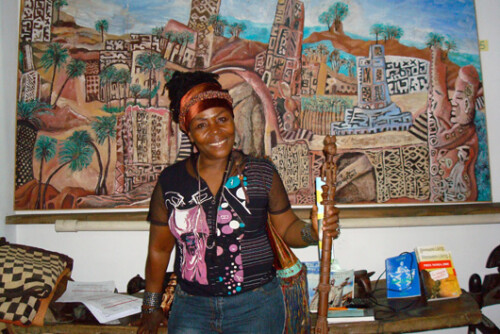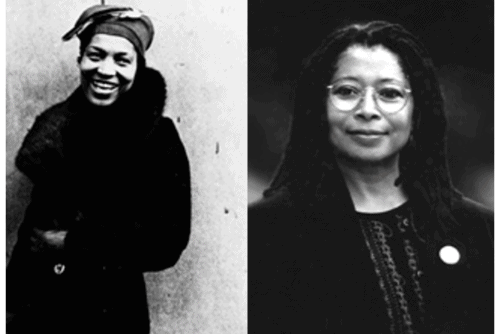The final section, “The Black Diaspora and the Academy,” features essays driven by the relation between gender, feminism, and the academy. In her essay based on a lecture delivered at Barnard College on April 22, 2008, Amina Mama considers the role of African universities in shaping postcolonial gender and gender relations. She discusses the Gender and Institutional Culture in African Universities (GICAU) project at the African Gender Institute at the University of Cape Town, which collected both qualitative and quantitative data on gender relations between 2004 and 2006 at University of Chiekh Anta Diop in Senegal, University of Ghana, University of Ibadan Nigeria, University of Zimbabwe, and University of Addis Ababa. Mama notes continuing gender disparities in enrollment and employment at these universities and argues that universities both explicitly and through a “hidden curriculum” produce and reinforce gender norms. Struggles for gender equity in the university reflect the growing feminist consciousness throughout the “developing world,” but, as Mama argues, the imposition of structural adjustment policies and the effects of globalization as reinforced through General Agreements on Trade and Tariffs (GATT) stipulations related to higher education have compromised these efforts. “Gender justice” remains central to efforts to revitalize African universities to “advance the democratic and social justice agendas that the African people are once again embracing as they move beyond the legacies of our difficult history and struggle to become peaceful, democratic, and just societies.”
Keisha-Khan Perry’s “Groundings with my Sisters: Towards a Black Diasporic Feminist Agenda in the Americas” understands the history of women’s activism in the African diaspora as a necessary adjunct to political action. Perry’s reflective piece suggests how black women in Latin America “understand their experiences, identities, and social activism in relationship to other black women throughout the Americas.” She opens by discussing the disappearance of black women from histories of liberation struggle. Despite this invisibility in academic and popular realms, Perry argues for and wishes to make visible a global consciousness among black feminists in Latin America that is distinctly different from more closely studied movements like Pan-Africanism. The black feminists she examines consciously adopt the African diaspora to frame the connection between their local struggles and those of other black women and as a basis for forming transnational communities around anti-sexist and anti racist struggle. Perry insists that experience and identity remain key for developing successful social movements and for counteracting the invisibility of women of the Africa diaspora, this despite the groundswell of condemnation of “identity politics,” primarily from feminist/gender and cultural studies.
Amina Mama notes that many of the gender studies units and gender initiatives draw “on international networks and external support to develop courses, training programs, and new research.” These two essays (Mama and Perry) are tangible reminders of the importance—and difficulty—of building and sustaining alternative and diasporic networks in scholarly, activist, and policy arenas. Along with Makini Boothe’s essay, they serve as reminders that while the academy and international conferences are important arenas for formulating and enacting feminist activism, they are neither the only nor even the primary sites for such interventions.


